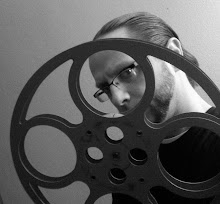Director Rob Reiner’s look at Lyndon B. Johnson, the 36th
President of the United States, takes a page directly out of Steven Spielberg’s
LINCOLN from 2012, where the traditional (and somewhat tired) approach of a
life story is traded in for one single, important chapter in the main
character’s life; a chapter that was vital to the President, and had an impact
on the country.
After losing the Presidential nomination of his own party,
Lyndon B. Johnson (Woody Harrelson), is asked by John F. Kennedy (Jeffrey
Donovan) to run as his Vice President. Once in office, Johnson frequently
clashes with John’s brother Robert (Michael Stahl-David); a situation which
only grows worse after John’s assassination which thrusts Johnson into the
Presidency.
LBJ is a film which quickly and efficiently checks off the
boxes in the history books, following Johnson as he flexes his power as a
Senate Majority Leader, his struggle with (at the time) the thankless and
power-less job of VP, and the weight of the world he feels once he finds
himself sitting at the big chair in the Oval Office. Presented in a non-linear
fashion, the base of the film takes place during that fateful day in Dallas,
with several extended flashbacks unspooling the story. After the perfectly
re-created assassination, the film really picks up as Johnson continues to
collide with Robert, and he struggles to decide if he should push Kennedy’s
Civil Rights Bill. There are a lot of hard decisions for Johnson to make, and
the film focuses on him as he is pulled in a thousand different directions by a
thousand different interested parties.
When a movie is named after the main character, we certainly
expect the main character to be the entire film. Johnson is portrayed not as a
power-hungry man, but just as a good fellow who just wants people to like him.
That works to an extent, but what caused that cause is where LBJ falls a bit
short. How Johnson came to be seeking approval from his peers is never
explored, and we’re left with just a thin representation of the man. LBJ also
doesn’t have a clear climax, or anything to work up to. The passage of the
Civil Rights Bill happens off-camera, after the film has ended (explained away
in the credits), and although it wraps with Johnson’s address to Congress and
the nation, it falls way short of a rousing finale or end of the journey.
Reiner’s attention to detail makes LBJ a fine historical
piece. The assassination of Kennedy is harrowing, and the recreations of the
historic, and all-too familiar photographs and films of the events that
followed are perfect. The film is brisk, very tightly edited, and dialogue is
sharp enough where even the driest of political jabber is interesting.
Woody Harrelson is magnificent as Johnson. He vanishes into
the role, looking and sounding just like the man. He finds a true heart in the
character, and come across as that fun uncle we only see on holidays. He is
matched perfectly by Jennifer Jason-Leigh, who plays his loving and supporting
wife Lady Bird. Jeffrey Donovan is very good as John F. Kennedy, and the
supporting cast, including Richard Jenkins, C. Thomas Howell, and Bill Pullman,
are also very good.
At only 97 minutes, LBJ seems to end just as it’s getting
started, and without a clear climax or enough development on Johnson, the film
feels like a middle chapter to a larger story. It comes
across as incomplete, but what we do get works well enough.
BOTTOM LINE: Rent it


No comments:
Post a Comment
A few rules:
1. Personal attacks not tolerated.
2. Haters welcome, if you can justify it.
3. Swearing is goddamn OK.